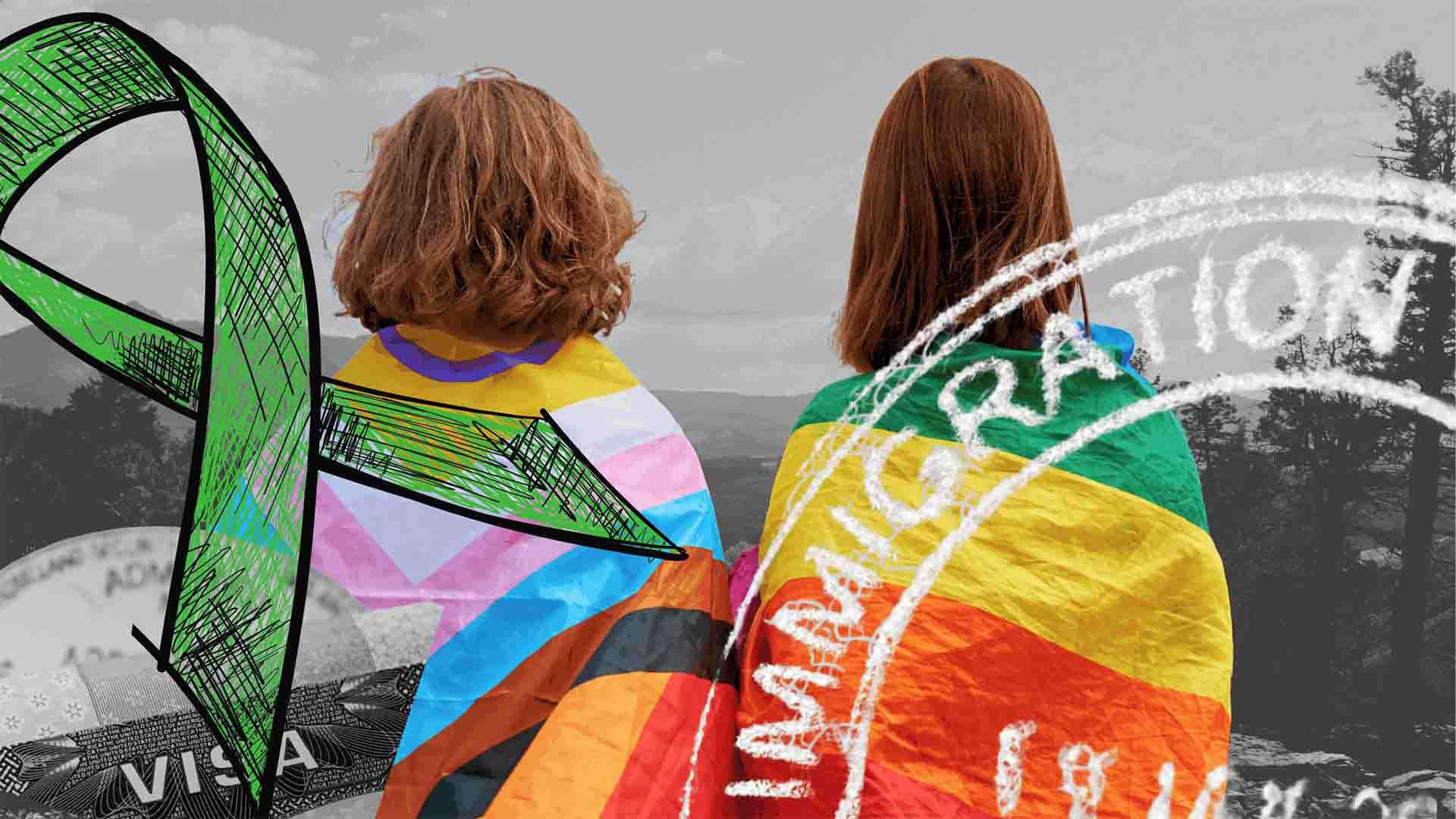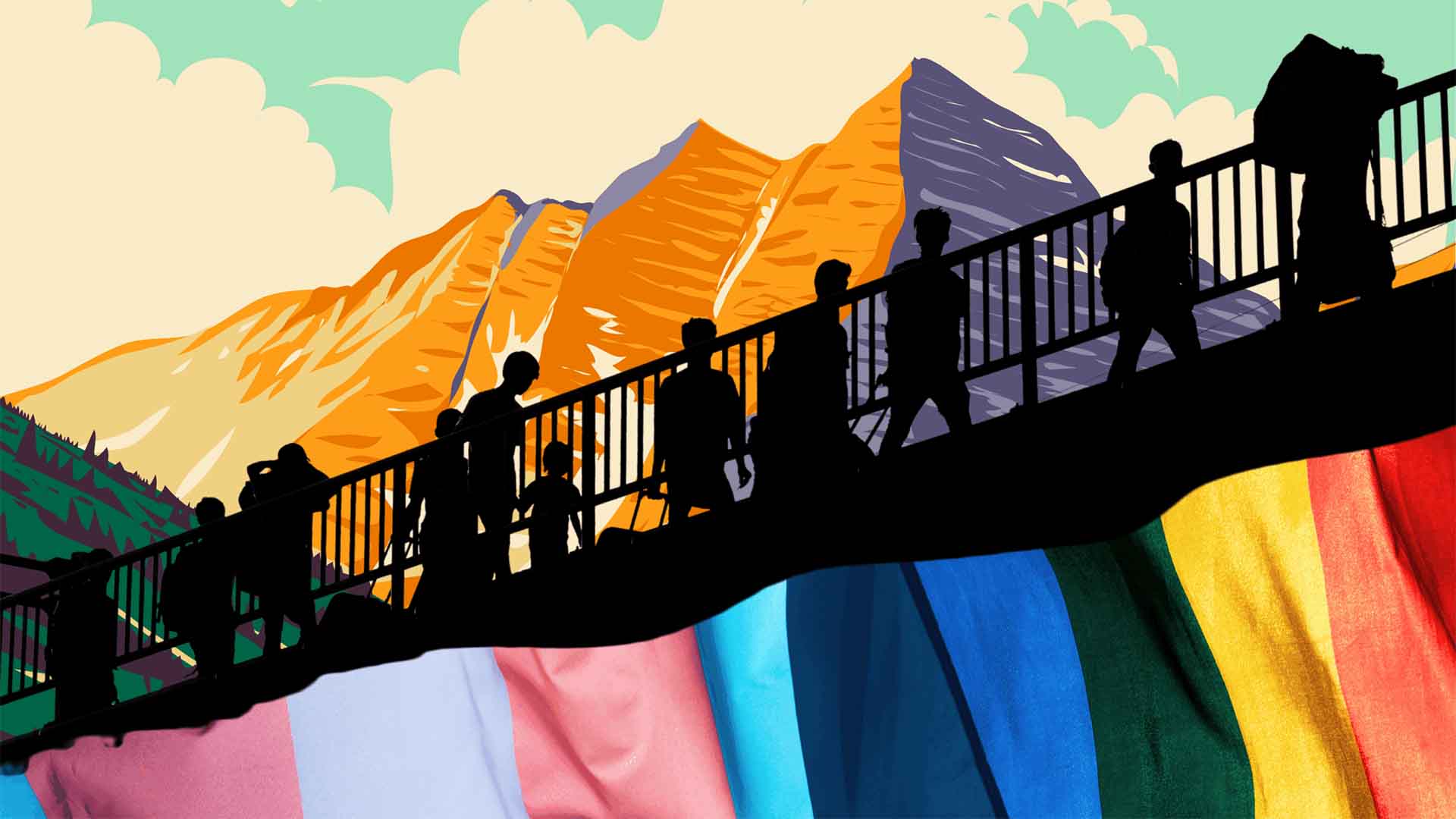Standing Up for Our Community

Right now, our mental health is more important than ever. Mental Health Month begins this year as harmful changes are being made to both funding and our most vulnerable communities. Proposed cuts to Medicaid along with funding claw backs to SAMHSA are threatening access to care for millions of people across the country. Several hundred anti-LGBTQ+ bills have been filed in 2025 so far, a record amount, while more aggressive tactics in immigration are leaving some families scared to even leave their homes.
Every person deserves the mental health care they need. But finding hope and recovery can be so much harder when falling into one of these vulnerable communities.
The Issues Are Not New
For the immigrant population, many might be dealing with past trauma from their country of origin. War and persecution are two of the biggest reasons people flee their home country in the first place and overcoming that trauma can be even more difficult in a place with a language barrier and without family nearby. Economic factors like not having employment and/or insurance are further obstacles.
Another issue for immigrants might be their culture’s own stigma or beliefs about mental health. Some cultures do not prioritize mental health or misunderstand it entirely, and others have different ways of addressing it than what we are used to in the U.S. For example, Katherine Ponte writes:
“Some cultures also have alternative treatment approaches to mental health care such as herbal remedies or spiritual practices. For example, some communities use culturally rooted practices of mindfulness and meditation or religious practices such as prayer.”
These practices can be helpful and should be respected. But they can also leave certain people struggling in silence or without the right tools and support they need.

The LGBTQ+ community might uniquely experience rejection and abuse from family. LGBTQ+ youth are more likely to experience homelessness due to be disowned by their parents or guardians. Internalized feelings of homophobia/transphobia can also make existing mental health struggles worse, leading to shame, guilt, and low self-esteem. Depending on where they live, LGBTQ+ members may flee their home state or city to be some place more welcoming to them. While that can provide some comfort in daily life, it can also create loneliness from such a sudden change.
Where the two communities overlap starts with discrimination and stigma. Both communities experience harassment, social exclusion, and even violence simply for being who they are. Representation and inclusivity are also an ongoing issue. People typically feel safe and understood when speaking with someone they can relate to. Steps have been taken to fill those provider gaps, but there is still a need for LGBTQ+ and bilingual therapists.
Standing Up for Each Other
What we need today, this month, and beyond, is true caring and inclusion for those around us, both inside office walls and out in our community. Community is one of the most important things to have in our mental health. Knowing there are people around us, family or not, who will support and stand up for us can make our fears seem small and our hearts less lonely.
Casey Chaffin makes that point clearly in writing to NAMI:
“My community — my trans, lesbian, gay, asexual, intersex, queer community — needs you to show up. We need collective care and radical solidarity in the face of trauma and tragedy… Loving us is not enough. And remember; queer and trans people exist in every culture, every race, and each member of our community faces different intersections of privilege and marginalization.”
Taking Action
Every person has the power to act. It can start with self-education and then evolve to things like speaking out against policies that harm our communities, writing to legislators, and supporting organizations that serve these communities. Here are some more detailed ways:
- Donate today to support the programs and services that serve our communities.
- Breaking the silence by supporting bilingual and culturally rooted mental health services in our community.
- Becoming an advocate by reducing stigma and increasing access by sharing resources, attending events, or donating to programs that support immigrant and LGBTQ+ communities.
- Are you a part of an organization? Contact our Community Engagement Coordinator Gemma Chacon-Acevado at GemmaC@jcmh.org and let’s work together to uplift immigrant voices and expand trauma-informed care.
- On a more personal level, you can take time to check on those around you who might be facing these struggles. Your presence is more important than you may think.
Resource Categories
- Addiction & Substance Use
- Anxiety
- Child Mental Health
- Crisis and Trauma
- Depression
- Exercise
- Just The Facts
- LGBTQIA+ & Pride
- Medicaid
- Men’s Mental Health
- Parenting
- Recovery
- Senior and Older Adult
- Socializing
- Stigma
- Stress
- Suicide Prevention
- Support & Advocacy
- Teen’s Mental Health
- Treatment Options
- Women’s Mental Health